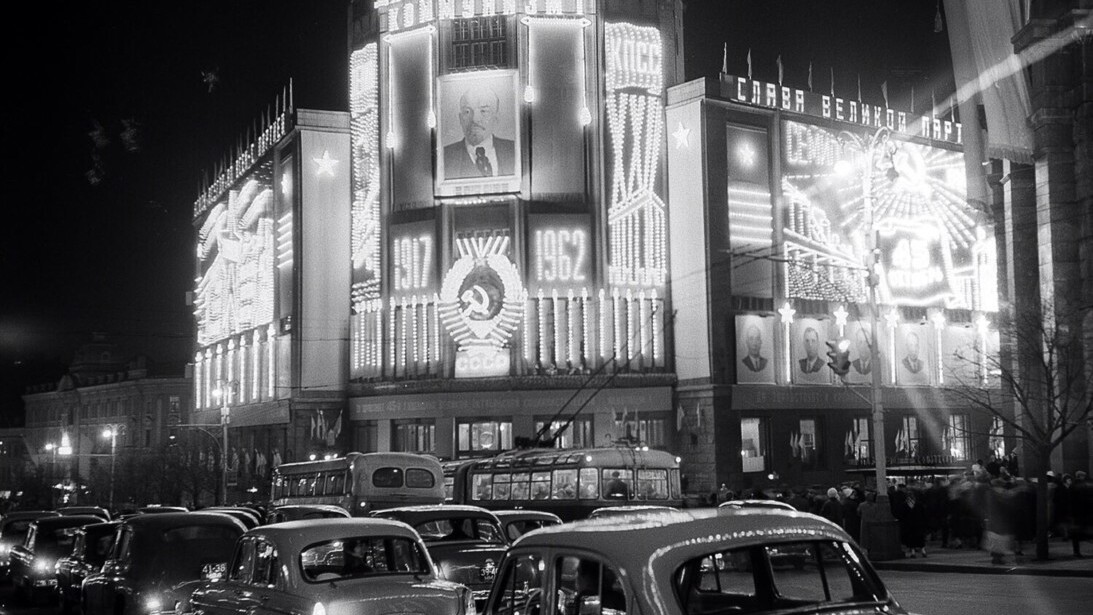
It started with snacks.
When Simon Dunlop and Victor Frumkin met in their mutual adoptive hometown of Moscow nearly 20 years ago, they hit it off well enough to go into business together. The Soviet Union had collapsed, yielding a vacuum in which every consumer product could be updated or reimagined; with communist politics phased out, private enterprise had come to Russia for the first time in the country’s contemporary history.
Those with a mind for business only needed to thumb through the Yellow Pages for inspiration in starting their own venture. In fact, some were doing exactly that.
“The guys who were doing well back then were starting water bottling businesses, making neon signs, anything from heavy industry to clothes washing,” said Dunlop. “We started a snack food company.”
The British expat arrived in Russia in the 1990s, working abroad for Philip Morris International until Frumkin, an American “repat” connecting with his Russian heritage, successfully yanked Dunlop out of corporate life and into self-employment.

With Moscow as their home base, the pair started Bridgetown Foods in 1999 and grew it into an operation with 5,000 employees and $150 million in turnover. They exited that business in 2008 to start something new.
Dream Industries is the multifaceted parent company that has united Frumkin and Dunlop’s technology- and community-focused business pursuits since 2010, operating out of downtown Moscow’s Central Telegraph building. Its headquarters are a shining demonstration of Soviet constructivist architecture, featuring ceilings set nearly 30-feet high and tall windows that look out at the busy Tverskaya Street below.
Nearly every European city has its own Telegraph building, which used to serve as ground zero for the population’s local and long-distance communication needs before the era of the smartphone. Dunlop and Frumkin scored their lease on the high-profile space by explaining that their new company was cut from the same cloth of ideas; they wanted to start something that would serve as the main initiation point for all relevant information in Moscow.

Within the expansive floorplan of Telegraph, DI runs its neural-network-driven streaming music service Zvooq and its social reading platform Bookmate out of private offices. The remaining 22,000 square feet are home to a robust coworking space and an events venue called DI Telegraph, which has hosted events ranging from art shows to 3D printing meetups to the Moscow Chess Open.
It’s a high-gravity landmark; in 2015, some 80,000 people walked through Telegraph’s doors for one reason or another.
Just like those launching their own projects out of Telegraph, Dunlop and Frumkin maintain their entrepreneurial hustle in no small way. They built an online platform called T&P for finding edutainment-flavored learning events; instead of dinner and a movie, people could attend an entertaining lecture by a college professor, or learn all about wine tasting from a professional sommelier.
They effectively stirred up a host of new date night ideas in Moscow before selling that business to a publishing group called Strategic. Zvooq has just closed a $5 million series B round led by Ulmart, an online retailer not unlike Amazon. Just weeks ago, Bookmate’s five millionth user registered for the service.
By building their own compelling tech products alongside a vibrant community of other independent professionals, former outsiders Dunlop and Frumkin lately find themselves not only at the center of Moscow’s physical geography, but embedded in the heart of its cultural and entrepreneurial scenes too.
Simply put, Dream Industries wants to be wherever technology and community intersect.
“I want to be in a place where I can bump into like-minded people and be part of a community,” said Frumkin. “Solving that problem that seems to be one of the core issues that many people have. ‘How do I plug into a community?’ With that in mind, we built this venue.”
Whether your venture is large or small, doing business in Russia is not without its unique challenges.
“Russia’s whole [startup and business] ecosystem is significantly underdeveloped from what you would expect elsewhere, in every aspect,” said Dunlop. “Corporations are not in the habit of working with startups, buying them, or acqui-hiring them. The investment scene, from seed and angel all the way to A-, B-, C-rounds makes it harder for startups to get financed at the right valuations.
“The culture around seeing top talent join a startup is underdeveloped, and it leads to problems sourcing talent for new companies.”
What’s next for these expatriate businessmen thriving in Moscow? To scale their operation, of course. The team aims to build a network of coworking venues around the world where public and private events are a significant part of each space.
“We’re targeting WeWork,” said Frumkin. “The hype around what they’re doing is overrated; they’re missing a big component. For us, this is just the start. It hasn’t been brought to the next level yet.”
Dream Industries is in active negotiation to acquire new workspaces in cities around the world, though it declines to specifically identify which. Helsinki, Stockholm, and Berlin came up as hypothetical destinations that would require a localized coworking and community-focused solution in order to succeed; wherever DI decides to expand next, it will be an effort led with a lot of local input.
The goal will be to build a welcoming, idea-nurturing space that feels domestic to a given country in the same way that DIT does to Russia.

“Moscow is absolutely the fulcrum between the east and the west,” Dunlop said. “We couldn’t have hoped for a better place to kick off this business and movement.” However things shake out, the Moscow space will remain the company’s flagship venue, elegantly tried and true.
As the future unrolls with potential for Dream Industries, we look forward to seeing what kinds of products and ideas emerge from its wake. After all, theirs is not exactly an idea you can just lift from the Yellow Pages.
Get the TNW newsletter
Get the most important tech news in your inbox each week.





